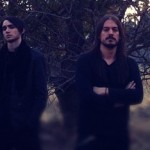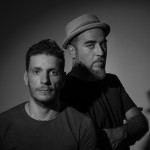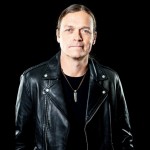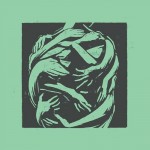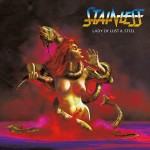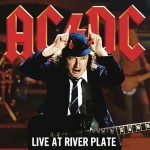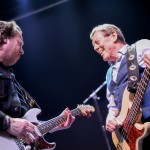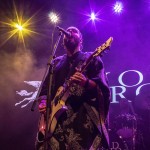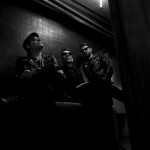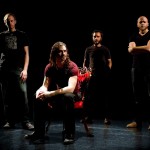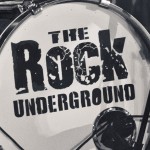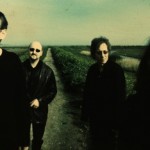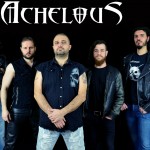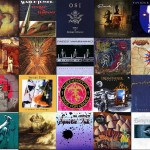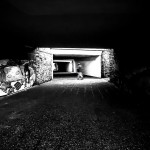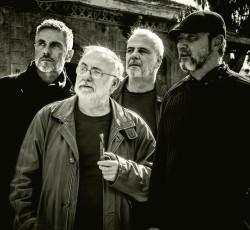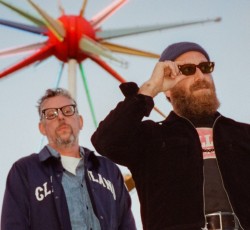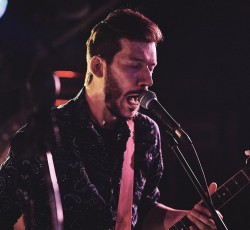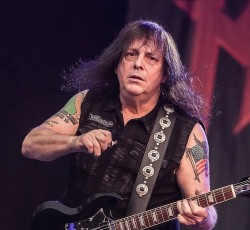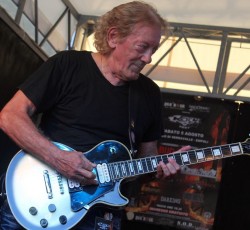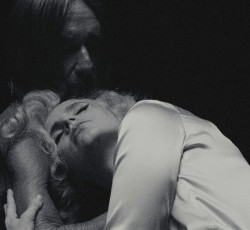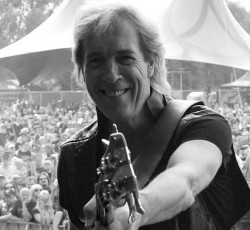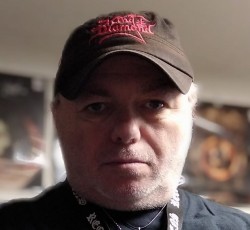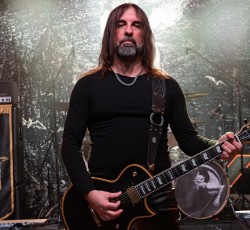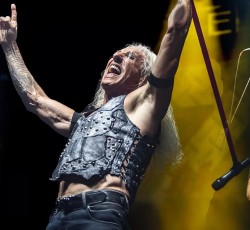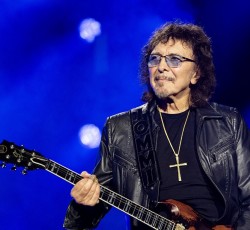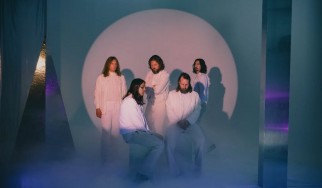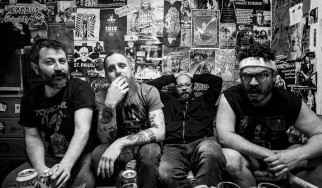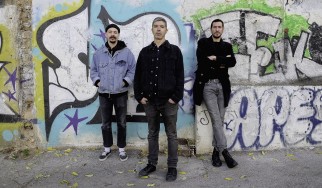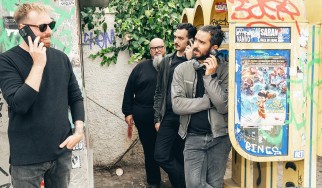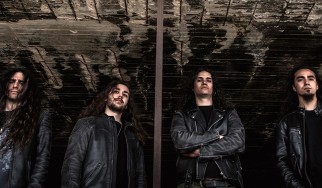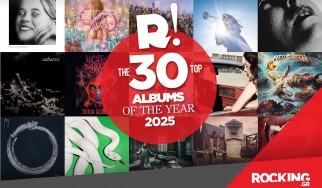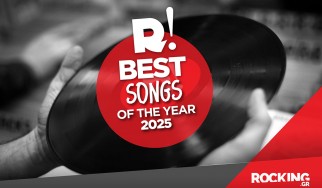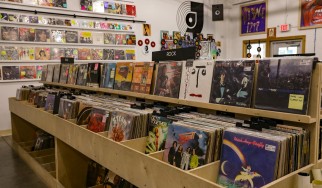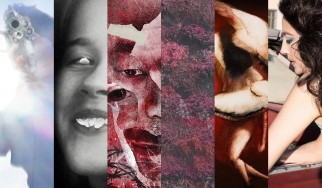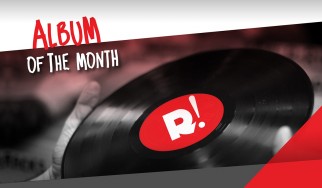Opeth: "This was the perfect time to bring the growls back"
A conversation about "The Last Will And Testament" and Opeth's different eras, with Fredrik Akesson
One of the hottest topics of discussion among the metal community is the return of Opeth, firstly because... it's Opeth and secondly because Mikael Akerfeldt decides to bring the growling vocals for "The Last Will And Testament". But, in truth, the new concept album is way more than just growling vocals, as it's maybe the band's most ambitious work to date...
Which means we had a lot to ask about, when we had the chance to interview the band's axeman Fredrik Akesson. Of courses, we discussed about the concept and how important it is, about the growls, about the (well, kind of) return to older and more metal musical forms, about having Ian Anderson as a guest, but also we talked about his contribution to the music overall and how he approaches his solos in the songs. Furthermore, he picked his favorite concept albums, we dived into the different eras of the band and we even talked about both his personal and Opeth's connection with Ghost. And then there's more...
Because Mikael is one of the most kind hearted, friendly and talkative guys out there. And at the same time he's very authentic and to the point, knowing exactly what he talks about. In one word, he's just lovely and that's something you can find it out for yourselves, while reading the extensive interview below.

Hello, Fredrik!
Hello! Just a minute to put away my guitar. I have to practice...
How are you?
I'm good. I've been here preparing for touring now. But also we've done lots of interviews. Recently, me and Mike, we went to London to do interviews and we were in Paris, and the entire band was in Germany at the label's headquarters and did listening session and interviews. Now we're back home, practicing, preparing gear, fixing with all of that stuff before the US tour starts. So, there's a lot of stuff to do now...
Well, I guess these promo trips for interviews must be quite different and easier than playing live, where the schedule is hectic and you have to go to a city, prepare for the show, leave the city and so forth... Or isn't it that different?
I mean, it's a different kind of scenario compared to doing interviews, I think. It's two different worlds basically, because playing is what you really want to do. And the interviews are necessary, but it takes a lot of time. But, it's good... it's a positive thing that somebody wants to talk to us... (laughs). It's something that comes with the job. So it's all good. But playing is what we want to do. Playing is playing and talking is talking... (laughs)
I'll try at least to make this one interesting...
No, no... I'm not complaining or anything. It's just that if you're a musician... For me right now I just need to play and play and play... (laughs)
But it's fun. It's also interesting to talk with journalists and see what they think about the new album. And you get some feedback because it's not out yet. And so far, all journalists has been really nice. So, it's good times also.
Yeah, yeah! You won't hear bad words from me. I won't break that chain...
Oh, you like it also? (laughs)
Yeah! We'll go into detail with the album, but I listen to it a lot. And the more I listen to it, the more it confuses me. And the more it confuses me the more I like it...
I like that one. Nobody said that before, so that's good! (laughs)
I always wondered "why don't we go to Greece?"
So before we go to the album and to actual interview - as I have a lot of questions and limited time - how was it for you in Athens during your recent visit here? Did you enjoy the show? I think it was one of your best appearances here in Greece. So how was it for you?
I loved it. What a fantastic location to play this show on! And we had a one day off before as well. I got to hang out a little bit. We had a nice hotel, so that could be in the pool. I was actually a bit sick, but we don't have to get into that. I was OK when the show was on. But the location of the concert was fantastic and also the fact it was so a long time ago, we played in Greece. And I always wondered "why don't we go to Greece?". Now, I really hope it won't be as long until next time, because that was a great gig and a fantastic crowd. Unfortunately, the ones who played before us, they played 20 minutes over their set length. We were supposed to play one more song, "Ghost Of Perdition" but it was too late, so we had to cut it.
Yeah, I didn't know that was the reason. I had seen the setlist backstage and I was expecting "Ghost Of Perdition"...
Yeah, but I still think we played a really long show. We played more than two hours anyways, because we played "Black Rose Immortal", which we rarely do. So that was especially for Greece. It's very occasionally.
It was fantastic... the playing, the venue, everything was really nice...
Thank you! To get to play up on a mountain in Athens, it's something you don't do every day! (laughs) So, I will always remember that show definitely.
Then then why not do it again? Anyway, let's go to the new album, because it's really anticipated, as it's been the longest gap between albums. Has it only been because of COVID or were there any other reasons that led to this five years distance between "In Cauda Venenum" and "The Last Will And Testament"?
COVID is one of the reasons... Because, we started touring for "In Cauda Venenum" and we managed to do the European Tour, we were in Australia, Japan and also North America. But then we were kind of lucky that the last show we did was in Los Angeles, at the Los Angeles Forum, and the week after they closed everything down for two years. But Mikael, who writes the majority of Opeth songs, he couldn't focus on a new album until we're done with the obligations and the touring for "In Cauda Venenum". And we had more tours planned in South America, more European tours and two more American tours with Mastodon... And, yeah, festivals... So we really wanted to finish the entire "In Cauda Venenum" touring cycle. And of course, those two years with the COVID, there were things going on more on a personal level. So that that was the reason.
But as soon as we were able to play again, we were one of the first bands out to play. So we were really doing anything during the COVID. Mikael did the TV series and I recorded with Ghost. So we did some stuff like that. But with Opeth... A lot of bands did streaming concerts, but we decided not to do that. Just wait until we could play for real again. So that was the reason. We had still obligations to fulfill before we can focus on a new album
But that's what we did right after the last tour... we started working on the album, when the touring was done...

Alright! Let's go to the questions for the new album. I'm sure there's questions that you are by now bored of answering, about growls, the concept or Ian Anderson etc...
Oh, it's fine!
So which one is the most common you get?
One of the questions that we always get, when me and Mike do interviews together now, is "will you play the album in its entirety?" That's a very common question...
But is there any question that you like someone to make to you and no one has up to now? Like "I wish they had pointed out and asked me about it..."
Oh, you put me on the spot there. I haven't really thought about it actually. It's just it's been so many questions. Every question is welcome really...
Mikael is a person you don't want to force him to do stuff because he will do the opposite, so it has to come from him. If I would tell him "we have to do a metal album with growls, he would do a pop album maybe
Now, everybody's talking about the stylistically return to the older days, as Mikael decided to bring back growls and add some of the heavier components of Opeth's music. But apart from the vocal aspect, do you feel like you are returning to a heavier sound instrumentally as well? Or is it more of a continuation of where we're left with "In Cauda Venenum"?
I think it's more intense than "In Cauda Venenum". It still has a lot of the prog elements that you can hear on "In Cauda Venenum", but nothing the same really. It kind of combines the last four albums we've done from "Heritage" up to "In Cauda Venenum" and some of the old stuff, but in a way that I think it's a step forward. A combination of all of them. Also there are new ingredients on the album, for instance the songs are more compressed, more intense, more restless. And also heavier than "In Cauda Venenum". It's more high energy stuff, combined with what Opeth always had, since the first album, where the heavy parts meet the more dynamic, melancholic parts. That's some ingredients that's been there all the time.
But, of course, the growls help to make the heavy parts more aggressive and heavy. And I love it! You know, I was really happy when Mikael did it. Mikael is a person you don't want to force him to do stuff because he will do the opposite, so it has to come from him. If I would tell him "we have to do a metal album with growls, he would do a pop album maybe"... (laughs)
Or a jazz one....
Slightly some of those ingredients are in our music sometimes maybe, but I think it's a step forward. And, I mean, it's more compressed, in comparison to a lot of old songs, where if there was a section we would kept on playing it for a very long time, but this time around it's quicker changes. But still the dynamics are there. It's not less ingredients, I think it's even more ingredients as...
I agree...
It's not like we do pop songs. The songs are slightly shorter, but they are still super complex. And also the drums are definitely the most difficult drum arrangements ever on an Opeth album, I would say... Easily...
This was the perfect time to bring the growls back
I agree with you because the album seems to visit many different eras of the band's music, focusing on a bigger variety of styles. And I was wondering if the tours that you did before where you represented different periods of Opeth may have something to do with this. You know, influenced you to follow these wider paths on the album.
Yeah, I think so. And also the fact that the growls came back... I noticed that Mikael started to like doing it again, when we played a lot of older stuff. For instance, the last tours we did, we played more of the older stuff and less of them later... we played some of it, but the majority was songs from the more growly era, so to speak. And I could tell that Mikael's growls were more guttural and heavier than ever! He really is like a bottle of wine that has matured. His growls over the years have always been fantastic, but now maybe the have even more depth and more aggression. In a different way perhaps... But I noticed most and for all that he started enjoying it again. And I mean it's a big part of Opeth's history and it's a big element of Opeth's music.
I thought this was the perfect time to bring it back. But it's not that we bring it back to sell more albums, it just also fits the concept of the album, because you have this Patriarch, this evil old man who has many different voices. You have Ian Anderson doing his voice. You have the growls that are also his voice. You even have Joe Tempest on one song which is also his voice. And my clean vocals also. I guess he must be very a schizophrenic old patriarch, that guy with all these voices... (laughs)
Yeah, I think the growths are mostly giving depth in the presentation of the story by highlighting the character of the cruel father, so it could have been also a decision like "we cannot not have growls when we have that type of sinister character there". It fits...
Yeah, I think you're right. I also think that it was easier to bring back the growls because of that. It made sense, you know... in the story and everything.
I didn't know when I did the solo that Ian Anderson was gonna play a flute solo before it, so I had to pinch my arm after that...
Yeah, understood. Now, undeniably, the album is defined by the concept of the lyrics and the storyline that's going on while listening to it. Has this condition made things easier or more difficult for you? Because, it's important to serve a certain atmosphere and keep a cohesion in the sound and in your playing for such an album, I think...
Yeah, it's truly inspiring. But, I mean, for me personally, the more creative part comes from bringing all the riffs and lead melodies and stuff like that. And the guitar solos, which on this time around were done in my home studio. Usually, I go to Mikael's studio and we improvise some stuff, but this time around I came up with them on my own and spent a lot of time with them. I tried to look at them like tiny compositions.
And also the fact that you asked about the concept, it's also something you have in the back of your mind when you do these kind of things. The storyline and the songs in the process were changing and developing all along, till the last song was written also. So the story in the beginning, the concept was slightly different. But then it came together in the end. I mean, there's a lot of small atmospheric sounds that we added when we were in the studio that really adds to everything.
And when I heard that Ian Anderson was going to be on the album... we didn't know that when we started, that he would say yes. And that he was actually going to be on several songs and also play flute on two songs, "Paragraph 4" and "Paragraph 7". I was like "this is perfect". I was so happy... because he has such a great speaking voice, narration voice. Initially, he wasn't supposed to play any flute on the album. It was actually Ian Anderson himself that asked "do you want some flute on the album?" But Mike didn't really have a section for the flute... luckily enough, it suited on "Paragraph 4", before I play a guitar solo... I didn't know when I did the solo that he's gonna play a flute solo before it, so I had to pinch my arm after that...

Nice! Musically, in this album, more than ever I think, the music is constantly shifting. Was it challenging to keep a compositional balance while working on songs with so many changes and fast alterations?
Yeah, definitely! I mean, every song on the album is very different. And also with the guitar solos I wanted them to be very different from one each other. The first song everybody got from Mikael was "Paragraph 7" and I started working on solos on it, so we could focus on one track at a time, but I was mainly only into doing the solo. Then at the end of last year, me and Waltteri, our new drummer, we started rehearsing together. We maybe played 20 times together and nailed the songs, just rhythm guitar and drums. Which was really difficult, because Mikael, the way he writes riffs is very different. It's a lot of polyrhythmic cool things. Even though the beat could be straight, he arranges the drums so they will play tricks with your mind, which makes it different. Then playing a steady 4/4 riff, which it actually mostly is, but the drums will fool you. So, it takes a while to get them into your DNA, which was definitely challenging. And I always think Mikael likes to challenge everybody in the band with every album. And I welcome that, because challenge is good and it hopefully leads to development.
Our management was not happy about naming the songs without real titles
Really, is it easy to remember to remember which song is which? Do you refer to them as paragraphs? Or do you have your own inside titles to make them apart?
Well, in the beginning "Paragraph 7" was the first we got. And for us that was "Song 1". And then the other songs came along, so for a while that was really confusing. "Oh, "Paragraph One" is part 2or part 3? Nobody knew anything. So we started, like, humming the first tone... [editor: sings a melody] And we'd go "oh, yeah, that one". So it was quite confusing.
Our management was not happy about naming the songs without real titles, because you know... the sign paragraph, you can't have it in your cell phone. If you're going on streaming services, you can't type it in. So they're of course thinking business "Oh, this won't work"... You can write paragraph as a word of course, so I guess that's what you have to do.
In the gaps between albums, I always try to develop as a player and lean into other styles, not just metal and hard rock, and transform them into what we do
All right, now to your role, there are many interesting leads on the album and some really tasty solos, such as on "Paragraph 5" and the blistering one on the 6th paragraph. What do you look out for when writing the solos of the songs?
Some of the solo sections are really not super long, so it's difficult to build. I can't last for a tone too long. I want it to be action-packed, but not overplaying. It has to fit the song. It has to serve a purpose for the song. I look at it like tiny compositions within the song. And one goal with all the solos on the album - because more or less play solos on every song on this album, except from "Paragraph 2", which is just a little tapping chaos thing - my goal was to make every solo very different. Cause also every song on the album is different as well, which goes hand in hand.
It's interesting you mentioned "Paragraph 5". I had to work on that solo for quite some time, because the section I play over is really difficult. You can't just play a blue scale entire for the entire solo, you have to be wherever you landed. And to think out melodies is important in the solo. I think strong melody lines combined with maybe some technical stuff. I try to step up my game and play something I haven't done before, try to do different solos. In the gaps between albums, I always try to develop as a player and lean into other styles, not just metal and hard rock, and transform them into what we do. But thank you that you like them. The last solo is the longest one... You know, the ballad solo on "A Story Never Told"... which was interesting to do. It' more sensitive, more delicate and emotional I could say.
So basically my approach is to make them different from each other and to reach new levels basically as a player.
Mikael brought one guitar, I brought maybe six... And four or five amps and cabinets... I'm a guitar nerd...
Now, apart from the lead parts, I recognize from what you're saying that during the process you had some other contributions in the final outcome, so I'd like to know which were the contributions you made, based on the fact that always that Mikael always come with a clear and detailed idea of what he wants to do with an album and what he wants to present. So how did you find a window of opportunity to add other things apart from the solos?
I would say he gives me the responsibility of sorting out the guitar tone when we're in the studio. Mikael brought one guitar, I brought maybe six... And four or five amps and cabinets... I'm a guitar nerd, I collect amps, I do a lot of research and compare distortion pedals and stuff like that... So, that is kind of my department that he likes me to take care of in the band. That's one thing.
And then I have certain ideas with the oscillating effects to make a bit more atmospheric type of sound, stuff like that. When we're in the studio, that's really when that comes in. On the album we share the heavy rhythm guitars, left-right. We always do that, me and Mike. Mikael plays the acoustic guitars. There are not that many acoustic guitars on the album, but most of the... not the solos, but the lead guitars, there's a lot of melodies and stuff that is played by me on the album, most of them. And then you have some calmer electric solos, that it's Mikael. The ones that we call "The lonely Swede". But the more solo-solos it's me playing it. We bounced a lot of ideas in the production regarding what sound to use and stuff like that. So, that's where I come in in a creative process a lot as well.
Waltteri practiced for six months for this album, and he told us if he would have gotten the job, like "you have to learn this in one month", he wouldn't have been able to do it
Then I guess you were close, as you said, with Waltteri, who has been in the band for two years now, but it's his first studio recording with Opeth. So what do you think he brought to the table? I think he did an amazing job, but you know better...
Yeah! First of all, he was like a vitamin injection for the band. We did three tours with him before going into the studio, which was very good for bonding and get to know each other. It's easy to work with him, as he's a very ambitious drummer. He practiced for six months for this album, and he told us if he would have gotten the job, like "you have to learn this in one month", he wouldn't have been able to do it. And he says he really developed as a drummer also by learning all these songs, because the drum beats were kind of written, but he of course gets some freedom with the fills. But Mikael is very picky when he does the demos. His demos sound like albums almost. Every time he plays something to us I'm like "oh, it sounds very good". But luckily, after everybody else in the band played in the studio, it sounds more alive and more organic, so that's good for us... (laughs)
But, Watlleri... he was amazing. The first track he recorded in the studio was "Paragraph 3", which is very difficult. And the first take was just THERE. Like many musicians, we said "that's fine". And he was "No, no, no... one more, one more"... (laughs) We also rehearsed as the entire band before we went into the studio, which I thought it was good. Cause everybody felt the songs, felt the riffs... So you don't think about it when you record, you can focus more on listening and what type of sound you want to have, what type of amp and put focus into that instead of being insecure with some part musically.
Now, on another note, I'd like to know as a listener and as a music fan metal fan, what are your favorite concept albums? The ones you remember yourself listening to along with the lyrics and losing yourself to the music and the story, like someone will do with "The Last Will And Testament".
"Operation: Mindcrime" of Queensryche! And also King Diamond's "Abigail" and "Them"... I mean, I listened to "The Wall" of Pink Floyd, of course... but I really didn't dig into the concept so much. But I watched the movie and everything. Apart from them... I think those are the main ones... Of course you have "Tommy" and all those classic albums.
Oh, yeah, one more! I want add Dio's "Magica". I remember I listened to it a lot...
"As Long As It's Not About Love" is a great track!
And also Judas Priest made the album "Nostradamus", but that's more recent.
It was an ambitious album...
Maybe it's a bit underrated. It's pretty good.
Ah, you know, Judas Priest fans want some straight heavy metal, in their face. And that one demanded a bit more digging...
Yeah, but I like that with Judas Priest. I mean, I'm a big fan of the early stuff, like "Sad Wings Of Destiny" and those albums, you know...
Ghost is a much bigger band than Opeth. They're playing arenas, they're on the top lists in the charts. We're not that type of band....
Another thing that I wanted to ask... you mentioned that you worked with Ghost before and I have to say I see an ongoing connection between Opeth and Ghost in a way. Because, you know Mikael is a good friend with Tobias (they were on TV show together), you played on "Impera" and then you have Stefan Boman engineering both your latest albums and the new one and "Impera" as well. So since you're two of the most successful metal bands that have come out of Sweden in in the last many years, maybe the most successful in recent years, what would you say are these two bands have in common, that leads them both to their success?
I think Ghost and Opeth are very different musically...
Of course...
But we're all friends. I mean, Tobias is also a good friend and he asked me to help him out on "Impera". But before that, I also played with him on Metallica's "Blacklist" album, where he did a cover of "Enter Sandman". That was the first time, when he asked me to play the solo on that one. On "Impera" I played most of it, basically all the guitars, like everything, acoustic, blah, blah... and the leads. It was a lot of work. But I also played on the "Phantomime" cover album, which was fun. I had more freedom there. We did "Phantom Of The Opera" and I had more freedom with the solo on that one.
Tobias is fantastic. He's so driven... I mean, Ghost is a much bigger band than Opeth. They're playing arenas, actually. You know, they're on the top lists in the charts. We're not that type of band....
It's funny because the first tour we did together with Ghost, they opened up for us. And we were wondering "who are these guys?" That's when we got to know them... We noticed that they sold way more merchandise than a regular opening band
Yeah, don't misunderstand me, I know that the new album is not aiming for the charts, exactly because it's brilliant for what it is... If someone digs the music you play, he has to study it and give it more time...
Yeah, hopefully. I mean, we got some airplay for these two tracks we've put out now. But our goal is not to do singles. We're not commercial or how you want to frame it...
Regarding Stefan Boman, that is actually thanks to Tobias, because he recorded with him "Mary On A Cross" and those songs... And we were going to do "In Cauda Venenum"... And we were talking about some other guys and he was the one who recommended that particular studio, that Stefan had at the time. So that's thanks to Tobias that we started working with him actually. So that's a clear connection...
But regarding the success... We focus on doing what we do and to do the best we can. Play as good shows as possible and take our responsibilities as a band member, as a musician. I can't really explain the phenomenon behind Ghost, but Tobias is a really hard working man. You know, he worked so hard to become what he is... And it's funny because the first tour we did together with Ghost, they opened up for us. That was in America, 2012. That was with us and Mastodon, we were co-headliners and Ghost opened up, and that was on the first Ghost album. And we were wondering "who are these guys?" That's when we got to know them... And then they had the old Pope, who was bit more evil and all that stuff. So we noticed that they sold way more merchandise than a regular opening band, to put it that way, if you know what I mean...

Yeah, yeah...
So you could definitely tell there was something cooking at the time. That was interesting.
"Watershed" is very special for me. It's a very unique album. It has the extreme metal elements and the more proggy side coming in a different way for the first time
You joined the band just one album before the stylistic rebranding, if I may say so. And now you see it returning to a more familiar sound and also coming out of the anniversary tour that we mentioned before, so you are really the one to speak about the whole Opeth catalogue in my opinion, apart from Mikael, of course. So with all your experience, what stands out the most for you from each era? Also, is there a certain era that is closer to your heart?
I'm still really, really happy with the first album I played on "Watershed". I think that's one of my absolute favorites.
It's amazing...
Before I joined the band, I was a fan of the band! I mean, I like all the albums...I think "Ghost Reveries" was fantastic. It sounds complete to me. But "Watershed" is very special for me. Maybe it has to do with the fact that it's my first album with the band, of course, but also I think it's a very unique album. It has the extreme metal elements and the more proggy side coming in a different way for the first time. And I'm also very happy with the cover songs we did...
Being more of a restless metalhead, I want to play more aggressive stuff. It took the time to digest that idea. But when I look back at it now, I'm super happy with "Heritage"
I remember "Would?"...
"Would?" was great and we did a Robin Trower song, "Bridge Of Sighs"...
For me, as a guitar player, there's a lot of diverse type of styles in that album. But that also became late. But, I'm happy with all the albums I played on. "Heritage" initially was going to be a continuation of "Watershed" and he played me some really heavy stuff, and then Martin Mendez was at Mikael's house and said "maybe we should do something different". So he kind of deleted a lot of stuff and rethought everything. I was not super happy in the beginning with the idea, but now when looking back at "Heritage", it's a fantastic album. It's really dark and interesting.
For me, being more of a restless metalhead, I want to play more aggressive stuff. It took the time to digest that idea. But when I look back at it now, I'm super happy with it. It has a lot of emotion and a lot of darkness too, in a very cool way. Talking about the four latest more proggy ones, I'm also very happy with... well now I'm mentioning every album there... but "Pale communion" it's I'm happy with that one.
Yeah, it has great songs. Each one has its own identity and style, but compositional wise I think "Pale Communion" is maybe my favorite of the four proggy ones...
Oh, interesting. Also, I'm very happy with the mix. Steven Wilson did the mix for the album. It came out great, you hear everything clear. I get really annoyed when I can't hear every detail clearly.
But to sum it up, I'll agree with you that "Watershed" is the most balanced between the metal side and the proggy side of Opeth. It has everything blended in a perfect balance and it stands out in your catalogue. And you're quite a big part of it in my opinion, with your playing and what you brought to the sound of it...
Luckily the first single, I co-wrote it with Mikael. So I wrote a track on that one. On "Porcelain Heart" I wrote the main riff. It happens sometimes... I don't have to write, but I try in every album to present ideas, and sometimes I get lucky... (laughs)
But, it's not really needed because Mikael is such an amazing missioner.
On the album you have a string orchestra. And to make it in its full mightiness, it would maybe require Ian Anderson to come and play a solo. So that's going to be a very, very expensive show
So, let's close with the most unexpected question. Will you play the whole album when you come to Greece next time?
(many laughs) We've thought about that. I mean, of course, it would make sense to do it because it's a concept album, it's a story. But, also, on the album you have a string orchestra. And to make it in its full mightiness, it would maybe require Ian Anderson to come and play a solo. So that's going to be a very, very expensive show.
But for now, we're looking at rehearsing 4 or 5 tracks that we're going to play. The advantage with these songs is that they're slightly shorter, so we might be able to put in three or four in the setlist, combined with the mix of the older stuff.
But to start with, we will not do it! But maybe someday on a special show... you never know!
All right, we'll be waiting for it. Thank you very much for your time. It was a pleasure. Congrats on the album once again!
Man, it was great. Great questions and I enjoyed the interview. But, yeah, say hi to the Greek fans and we hope to come back soon because we love it! For real!


